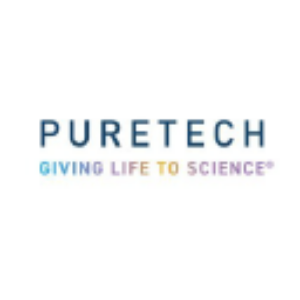PureTech Presents Research Highlighting Burden of Idiopathic Pulmonary Fibrosis (IPF) and Use of a Bayesian Statistical Analysis for LYT-100 (Deupirfenidone) at CHEST 2024 Annual Meeting
IPF patient survey provides new insights into disease burden and patient experience one decade after the approval of the first antifibrotics for IPF
Clinical abstract reviews the ability of Bayesian analysis to maximize statistical power and reduce the number of patients on placebo in Phase 2b ELEVATE IPF trial of LYT-100
Topline data from the Phase 2b ELEVATE IPF trial of LYT-100 expected by the end of 2024
“This month marks a decade since the first two antifibrotics for the treatment of IPF were approved, and since then, limited therapeutic advances have been made and people with IPF still face substantial challenges,” said Camilla Graham, MD, MPH, Vice President of Medical Affairs at PureTech Health. “At PureTech, we are investing in changing this paradigm and this research highlights ongoing gaps with symptom management and supportive care in IPF. We hope this research will help improve communications between people with IPF and their healthcare teams. It also informs our work to develop a new IPF treatment option, which we believe will address key limitations of the current standard-of-care medicines.”
PureTech presented qualitative and quantitative research that highlights both the burden of IPF as well as gaps in disease management that exacerbate the quality of life for people with IPF. The 90-person survey found that the majority of participants experience a high burden of disease that interferes with their normal activities, including shortness of breath (
Beyond this, PureTech’s research revealed commonalities and differences in the patient experience for those receiving care at interstitial lung disease (ILD) centers (n=45) versus community pulmonary practices (CPP) (n=45). When asked about their top resources for IPF information, nearly all people in both care settings listed their pulmonologist as their primary source, and the majority in each were very satisfied with their communications about their IPF diagnosis. Antifibrotic treatment rates at ILD centers and CPPs were similar, but differences existed in perceived communication around antifibrotic treatment options.
PureTech also presented a clinical abstract reviewing its plan to evaluate the primary outcome of the Phase 2b ELEVATE IPF clinical trial using a prespecified Bayesian approach. ELEVATE IPF is PureTech’s randomized, double-blind, placebo-controlled, dose-finding study designed to evaluate the efficacy, tolerability, safety and dosing regimen of LYT-100 in patients with IPF compared to placebo. The trial will also assess the relative efficacy of two doses of LYT-100. Participants have been randomized in a ratio of 1:1:1:1 to receive either 550 mg of LYT-100, 825 mg of LYT-100, pirfenidone or placebo three times a day (TID) for up to 26 weeks and have the option to enroll in an open-label extension. The primary endpoint is the rate of decline in Forced Vital Capacity (FVC) for the combined LYT-100 arms versus placebo over the 26-week treatment period using a Bayesian linear mixed effects model including dynamic borrowing. This approach augments the placebo arm sample size with external placebo data from historical IPF trials. A Bayesian approach has the advantage of enhancing overall statistical power and improving decision-making while limiting the number of patients required to be treated with placebo in a fatal disease. This approach has been used previously in Phase 2 trials of novel IPF therapeutics.
“Bayesian dynamic borrowing allows us to leverage historical trial data for the placebo arm to maximize the number of patients exposed to active treatment arms and minimize the number exposed to placebo,” said Carol Ann Satler, MD, PhD, Senior Director, Clinical Development at PureTech. “IPF is a rare, fatal disease, underscoring the importance of efficient clinical trial design. Bayesian analyses have previously been leveraged in IPF studies for this reason, especially given the substantial historical placebo dataset in IPF, and we look forward to sharing results from our Phase 2b trial by the end of this year.”
Topline results from the Phase 2b ELEVATE IPF trial are expected by the end of 2024. A streamlined development program for LYT-100 is planned using the same endpoints that have supported past IPF product approvals. Pending positive clinical outcomes and regulatory feedback, the program will advance into a Phase 3 clinical trial. PureTech believes the results of the Phase 2b trial, together with a successful Phase 3 trial, could serve as the basis for registration in the
About Idiopathic Pulmonary Fibrosis (IPF)
IPF is a rare, progressive and fatal lung disease with a median survival of 2-5 years.1 Pirfenidone is one of only two drugs approved to treat IPF, and for those patients able to tolerate treatment, it has been shown to improve survival by approximately 2.5 years compared to supportive care alone.1 However, tolerability issues with both of the standard-of-care drugs result in patients discontinuing treatment or reducing their dose. This contributes to nearly three out of every four people with IPF choosing to forego treatment with these otherwise efficacious medicines.2
About LYT-100 (Deupirfenidone)
LYT-100 (deupirfenidone) is being advanced for the treatment of conditions involving inflammation and fibrosis, including IPF. It is a deuterated form of pirfenidone that is designed to retain the beneficial pharmacology and clinically-validated efficacy of pirfenidone with a highly differentiated PK profile. LYT-100 has also demonstrated favorable tolerability across multiple clinical studies in more than 400 individuals.
Pirfenidone is one of the two standard-of-care treatments approved for IPF, along with nintedanib, both of which are efficacious but associated with significant tolerability issues. These tolerability issues result in treatment discontinuations and/or dose reductions below the FDA-approved dose, thereby limiting the effectiveness of these otherwise efficacious medicines. With LYT-100, PureTech aims to deliver better outcomes for patients by enabling individuals to maintain comparable or higher pirfenidone-equivalent doses for longer. PureTech believes LYT-100 has the potential both to supplant the current standard-of-care treatments and to serve a larger market of patients who are unable to tolerate current therapies. Topline data for the global Phase 2 ELEVATE IPF trial are expected by the end of 2024.
About PureTech Health
PureTech is a clinical-stage biotherapeutics company dedicated to giving life to new classes of medicine to change the lives of patients with devastating diseases. The Company has created a broad and deep pipeline through its experienced research and development team and its extensive network of scientists, clinicians and industry leaders that is being advanced both internally and through its Founded Entities. PureTech's R&D engine has resulted in the development of 29 therapeutics and therapeutic candidates, including three that have been approved by the
For more information, visit www.puretechhealth.com or connect with us on X (formerly Twitter) @puretechh.
Cautionary Note Regarding Forward-Looking Statements
This press release contains statements that are or may be forward-looking statements within the meaning of the Private Securities Litigation Reform Act of 1995. All statements contained in this press release that do not relate to matters of historical fact should be considered forward-looking statements, including without limitation those related to the LYT-100 development program and development plans, its potential benefits to patients, the timing for results from the Phase 2b clinical trial of LYT-100, the advancement of the program into a Phase 3 trial, and our future prospects, developments and strategies. The forward-looking statements are based on current expectations and are subject to known and unknown risks, uncertainties and other important factors that could cause actual results, performance and achievements to differ materially from current expectations, including, but not limited to, those risks, uncertainties and other important factors described under the caption "Risk Factors" in our Annual Report on Form 20-F for the year ended December 31, 2023, filed with the SEC and in our other regulatory filings. These forward-looking statements are based on assumptions regarding the present and future business strategies of the Company and the environment in which it will operate in the future. Each forward-looking statement speaks only as at the date of this press release. Except as required by law and regulatory requirements, we disclaim any obligation to update or revise these forward-looking statements, whether as a result of new information, future events or otherwise.
_________________________
1 Fisher, M., Nathan, S. D., Hill, C., Marshall, J., Dejonckheere, F., Thuresson, P., & Maher, T. M. (2017). Predicting Life Expectancy for Pirfenidone in Idiopathic Pulmonary Fibrosis. Journal of Managed Care & Specialty Pharmacy, 23(3-b Suppl), S17-S24. https://doi.org/10.18553/jmcp.2017.23.3-b.s17
2 Dempsey TM, Payne S, Sangaralingham L, Yao X, Shah ND, Limper AH. Adoption of the Antifibrotic Medications Pirfenidone and Nintedanib for Patients with Idiopathic Pulmonary Fibrosis. Ann Am Thorac Soc. 2021 Jul;18(7):1121-1128
View source version on businesswire.com: https://www.businesswire.com/news/home/20241008271143/en/
PureTech
Public Relations
publicrelations@puretechhealth.com
Ben Atwell, Rob Winder
+44 (0) 20 3727 1000
puretech@fticonsulting.com
US Media
Justin Chen
+1-609-578-7230
jchen@tenbridgecommunications.com
Source: PureTech Health plc









